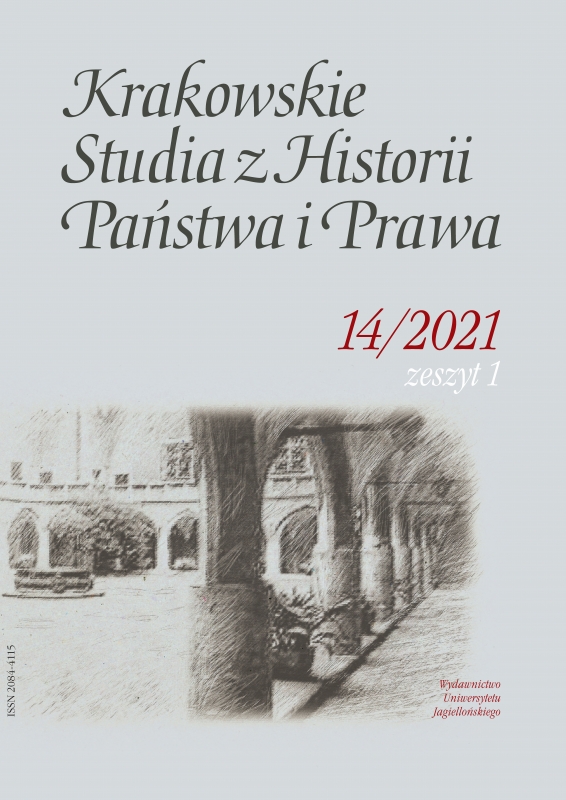Przepisy karne ustawy o prawie autorskim z 1926 roku w pracach ustawodawczych i praktyce sądowej. Naddruk – plagiat – strona podmiotowa – sankcje karne
The Penal Provisions of the Polish Copyright Law of 1926 in Legislative Works and Judicial Practice: Overprint – Plagiarism – the Subjective Side – Penal Sanctions
Author(s): Damian SzczepaniakSubject(s): History, History of Law
Published by: Wydawnictwo Uniwersytetu Jagiellońskiego
Keywords: karnoprawna ochrona praw autorskich; Komisja Kodyfikacyjna; naddruk; plagiat; Sąd Okręgowy w Krakowie; strona podmiotowa czynu zabronionego; ustawa o prawie autorskim z 1926 r.
Summary/Abstract: This paper is the result of the continuation of ongoing studies on the penal provisions of the Polish Copyright Law of 1926. Some of the research results were presented in the article titled The Penal Provisions of the Polish Copyright Law of 1926. The History of Its Creation –Its General Characteristics –Art. 61 and Its Significance for Further Regulations, which was published in “Cracow Studies of Constitutional and Legal History”(2018, issue 4). This text is a presentation of the analysis of special provisions regulating penal liability for the offences of overprint and plagiarism. Further in the article, the notion of the subjective side is discussed in relation to the offences defined in the Polish Copyright Law of 1926 and also the penal sanctions provided for these offences. In the analysis of the specific problems, emphasis is placed on the course of works on the regulations conducted by the Codification Commission and by the Parliament as well as on the issues related to their application. This approach makes it possible to reconstruct the fundamental legal problems faced by the codifiers and subsequently by the system of justice applying the relevant regulations. The studies concerning the application of copyright law were mainly focused on the judicial practice of the District Court in Kraków. They were based on the court registers and records from the interwar period stored in the National Archives in Kraków. The archival research discovered that the cases concerning the infringement of copyright constituted barely 0.09% of all criminal cases lodged with the District Court in Kraków in the 1930s. In that period, only five persons were definitely sentenced in this respect. Even though there were few criminal cases concerning copyright infringement in the times of the Second Polish Republic, the rulings issued, especially those issued by the Supreme Court, undoubtedly influenced the formation of jurisprudence regarding the interpretation of copyright, and they continue to be cited in pertinent literature up to this day.
Journal: Krakowskie Studia z Historii Państwa i Prawa
- Issue Year: 14/2021
- Issue No: 1
- Page Range: 31-57
- Page Count: 26
- Language: Polish

